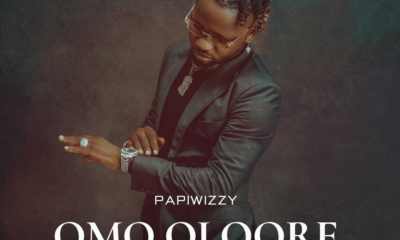The Imo State Governor, Hope Uzodinma, has said that the five states that make up the South-East geo-political zone have clear expectations regarding the proposals in the ongoing 1999 Constitution review by the National Assembly.
He stated this in his remarks at the South East Zonal public hearing for Imo and Abia on the Constitution Review held in Owerri, the Imo State capital on Saturday.
According to the governor, the South-East remains the only zone with five states, underscoring the need for at least, two additional states in the region.
He said, “Every other zone has six or more. This imbalance has led to underrepresentation in critical national institutions, from the National Assembly to the Federal Executive Council. It has shrunk our voice and abridged our inclusivity. “Therefore, it’s only fair and just that we ask for the creation of at least two additional states in the South East.
“It is my well considered submission that Anim State should be one of the new states to be created. This is one state that will have an oil-producing status upon creation.
“This makes it commercially viable, with sufficient revenue base to self sustain.
“This should naturally go hand-in-hand with the creation of new local government areas for the zone.”
The governor noted that “Until a few years ago, Owerri served as the capital of us all. Today, we have Umuahia and Abakaliki as capitals of new states.
“Through our collective efforts, perhaps, we shall soon have more state capitals like Orlu, Aba, Nsukka, and more.
“I believe that this is the prayer of the entire South-East, and it shall come to pass by the grace of God”.
On indigineship, Uzodimma noted that though the Constitution guarantees every citizen the right to live and work in any part of the country, he regretted that those born and raised in places where their grandparents may not have originated from are still regarded and treated as non-indigenes.
“We should not be seen to be speaking from two sides of our mouth. We need to legally define indigeneship by birth or long-term residence – say 10 years.
“Anyone born in a state or has lived in a state for upwards of 10 years should be a legitimate indigene of that state. This is common practice in advanced democracies.
“It was also becoming the norm in our pre-first Republic years, until that Republic was cut short. How else did Mallam Umaru Altine become the Mayor of Enugu in 1952 if not because he was accepted as an indigene of Enugu?
“That tells us something profound about our potential for unity if only the constitution can catch up with our history.
“I therefore urge this committee to seriously consider this matter as part of the proposed constitutional amendments.”
He also made a case for constitutional amendment to pave the way for rotational presidency, not along the North–South divide, but along the six established geo-political zones.
He continued, “This is not about tokenism but national stability. “Already, zoning has helped calm nerves over federal appointments. If Nigerians know that the presidency will rotate among the six zones, it will remove the fear of domination and deepen the sense of inclusion in the country.
“In addition, the time has come for us to take decisive steps on state police. The current centralised policing structure is overstretched and often disconnected from local realities.
“As the Chairman of the Progressive Governors’ Forum, I can confirm that we support the decentralisation of the police for greater responsiveness and effectiveness.
“The fear that governors will misuse such a force is unfounded and frankly outdated.
“We cannot allow the past to paralyse the future when our citizens are crying out for safety and order at the grassroots.”
He called on the committee to leverage the nation’s diversity, saying, “Our diversity is our strength, not our weakness. But that strength must be harnessed through law and equity. Therefore, our Constitution must reflect our shared values, not just our shared borders.
“Distinguished Honourable members, as you tour the country on this important assignment, may you be guided by the hope of millions who seek a Constitution that truly belongs to them: one that ensures fairness, equity, and a level playing field for all.
“As we all know, there are differing views across Nigeria about what our Constitution should reflect in order to fortify our young democracy. These perspectives mirror both the richness of our diversity and the inadequacies of a legal framework that often leaves many citizens feeling unprotected or unaccommodated in project Nigeria”.
Punch

 NEWS2 years ago
NEWS2 years ago
 MUSIC4 years ago
MUSIC4 years ago
 MUSIC4 years ago
MUSIC4 years ago
 MUSIC2 years ago
MUSIC2 years ago












